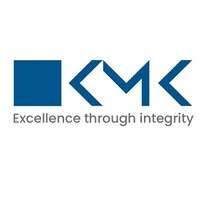In an increasingly globalized economy, businesses of all sizes are seeking smarter ways to manage their resources while staying competitive. One of the most effective strategies gaining popularity in recent years is offshore accounting. By outsourcing financial tasks to skilled professionals in other countries, companies can significantly reduce costs while maintaining — and often improving — the quality of their financial operations.
In this article, we’ll explore how offshore accounting works, the cost-saving benefits it offers, and how businesses can ensure quality isn’t sacrificed in the process.
What is Offshore Accounting?
Offshore accounting involves outsourcing financial and bookkeeping services to professionals in countries where labor costs are lower. These services can include:
-
Bookkeeping
-
Payroll processing
-
Tax preparation and filing
-
Financial reporting
-
Accounts payable and receivable management
-
Auditing assistance
Common offshore accounting destinations include India, the Philippines, Eastern Europe, and parts of Latin America — regions known for their skilled financial talent at competitive rates.
How Offshore Accounting Reduces Costs
1. Lower Labor Costs
The most obvious and immediate saving comes from lower wages in offshore markets. Hiring a qualified accountant in the U.S., UK, or Australia can cost significantly more than hiring a similarly skilled professional offshore. For example, where a U.S.-based accountant might earn $60,000–$80,000 annually, an offshore accountant with comparable qualifications might cost $10,000–$20,000.
2. Reduced Overhead
Offshoring eliminates many in-house costs, including:
-
Office space
-
Utilities
-
Equipment (computers, phones, etc.)
-
Employee benefits (health insurance, retirement contributions, etc.)
These savings can add up quickly, especially for small to mid-sized businesses with tight margins.
3. Scalability Without Additional Infrastructure
Offshore accounting teams allow businesses to scale up or down depending on their needs — without the headache of recruiting, onboarding, or expanding office space. This flexibility is especially useful during busy periods like tax season or audits.
4. 24/7 Productivity
Working with teams in different time zones can offer near round-the-clock productivity. Tasks completed overnight offshore can be ready by the start of the business day in your local office, accelerating workflows and decision-making.
Maintaining (or Improving) Quality Standards
A common concern with offshore accounting is whether the quality of work will meet expectations. While the fear is understandable, it’s often misguided — many offshore professionals are highly educated, certified, and experienced in international accounting standards like GAAP or IFRS.
Here’s how businesses ensure high-quality outcomes:
1. Work with Reputable Offshore Providers
Choose providers with a strong track record, positive client testimonials, and clear communication protocols. Many reputable firms offer service-level agreements (SLAs) and quality guarantees to give you peace of mind.
2. Verify Credentials and Certifications
Ensure the offshore team has relevant qualifications, such as:
-
Chartered Accountant (CA)
-
Certified Public Accountant (CPA)
-
Association of Chartered Certified Accountants (ACCA)
These professionals often have extensive knowledge of both local and international tax laws and accounting standards.
3. Use Modern Technology and Cloud-Based Tools
Modern accounting platforms like QuickBooks Online, Xero, FreshBooks, and NetSuite make it easy to collaborate with offshore teams. Cloud-based systems offer real-time access, transparency, and security for all financial data.
4. Set Clear Expectations and KPIs
Start the partnership with clear goals, deadlines, and performance metrics. Define reporting frequency, review processes, and escalation paths. Regular check-ins (e.g., weekly Zoom meetings) help keep everyone aligned and accountable.
5. Data Security and Compliance
Ensure your offshore provider complies with international data privacy laws like GDPR or SOC 2 standards. Reputable firms invest in cybersecurity infrastructure to protect sensitive financial data, offering encryption, secure file transfer protocols, and multi-factor authentication.
Who Should Consider Offshore Accounting?
Offshore accounting is an ideal solution for:
-
Startups and small businesses that need cost-effective accounting services
-
Medium-sized businesses seeking to scale without large overhead
-
E-commerce companies with complex global transactions
-
Accounting firms looking to expand their team through offshore staff
It’s also useful for companies that want to focus on core competencies while delegating financial tasks to specialists.
Potential Challenges and How to Overcome Them
While the advantages are clear, businesses should also be aware of potential drawbacks:
1. Time Zone Differences
While 24/7 productivity is a benefit, time differences can make real-time communication tricky. Overcome this by establishing fixed hours of overlap and using tools like Slack, Zoom, or Trello for asynchronous collaboration.
2. Cultural and Communication Barriers
Language differences and business culture may cause misunderstandings. To minimize this, work with teams proficient in English and invest time in building rapport and mutual understanding.
3. Initial Setup Time
Offshoring isn’t plug-and-play — it requires some time to onboard the provider and align expectations. However, this initial investment pays off with long-term savings and efficiency.
Conclusion
Offshore accounting offers a powerful way for businesses to cut costs without compromising quality. By leveraging skilled global talent, modern technology, and thoughtful partnerships, companies can streamline their financial operations while gaining a competitive edge.
Whether you’re a startup looking to stretch your budget or a growing business aiming to scale, offshore accounting can be a strategic move — not just to save money, but to enhance your overall financial efficiency.







